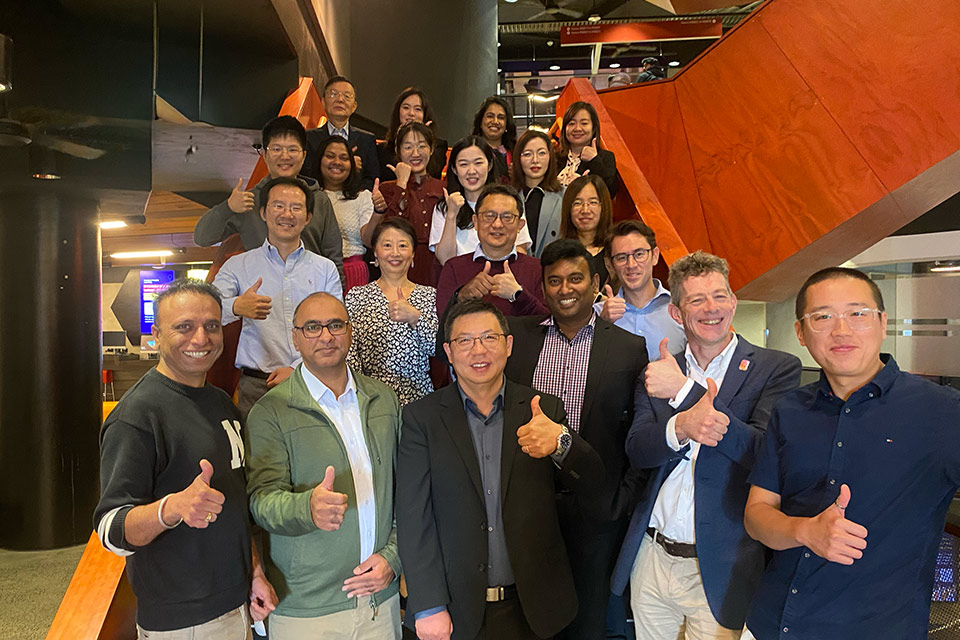Centre for Future Construction (CFC)
The Centre for Future Construction drives innovation in sustainable material and structural design and promote digital technologies across the construction industry.

The construction industry is a significant source of emissions. With the government goals aimed at reducing these emissions, achieving carbon neutrality, and promoting waste recycling, our project is well-positioned to make a meaningful impact.
CFC has a proven track record of successfully contributing to these objectives through innovative solutions that enhance sustainability, reduce environmental impact, and support the transition to a circular economy in construction.
Our goal is to establish a knowledge hub that drives the future modernisation of the construction industry transforming conventional construction processes by providing accessible, reliable, user-centric solutions and insights.
We offer a complete knowledge chain for the entire life cycle of construction, from material design and testing to implementation, performance monitoring, and sustainability assessments, ensuring that every phase is optimized for efficiency, durability, and environmental impact.
With industry engagement from over 100 partners, we leverage a vast network of expertise and collaboration, ensuring our projects benefit from diverse insights.
The centre has achieved Technology Readiness Level 5-6, demonstrating that our technology has been successfully validated and prototyped in relevant environments, positioning it ready for further scaling and industry integration.
We are supported by RMIT’s unique and state-of-the-art facilities, which provide advanced testing and analysis capabilities essential for developing and validating innovative materials and construction techniques.
Exploring cutting-edge digital solutions for sustainable infrastructure
Cutting-edge modelling techniques for infrastructure management
The Centre for Future Construction drives research translation to revolutionise the industry with sustainable solutions. Leveraging RMIT’s expertise in material sciences and digital technologies, the Centre transforms ideas into practical outcomes, targeting carbon neutrality and productivity gains.
Collaboration fuels this mission. Roundtable discussions with industry identify challenges, shaping research that delivers impact. Translational trials—like the world-first coffee concrete footpath and multi-council recycled plastic road projects—demonstrate how new materials become viable solutions. Pilot plants for plastic-glass roof tiles and fibre-reinforced asphalt scale these innovations, supported by outreach to councils and housing bodies.
Digital tools accelerate progress. Digital twins, AI, and IoT for carbon-zero infrastructure, water pipeline management and bridge monitoring boost efficiency and resilience. Meanwhile, 3D concrete printing and machine learning-optimized designs enhance prototyping.
The Centre trains researchers through Industry PhDs, internships, and international workshops, drawing talent globally. This ensures fundamental knowledge reaches industry, removing adoption barriers. By integrating collaboration, trials, and technology, the Centre redefines construction for a sustainable future.

The Centre for Future Construction (CFC) is supported by RMIT's Leading Research Centre (LRC) initiative — a mechanism designed to identify, support, and grow research areas of strategic priority to the STEM College and to RMIT. If you would like to know more about our Leading Research Centre initiative please visit the LRC website, or contact us at stem.research@rmit.edu.au for more information.


RMIT University acknowledges the people of the Woi wurrung and Boon wurrung language groups of the eastern Kulin Nation on whose unceded lands we conduct the business of the University. RMIT University respectfully acknowledges their Ancestors and Elders, past and present. RMIT also acknowledges the Traditional Custodians and their Ancestors of the lands and waters across Australia where we conduct our business - Artwork 'Sentient' by Hollie Johnson, Gunaikurnai and Monero Ngarigo.
Learn more about our commitment to Indigenous cultures